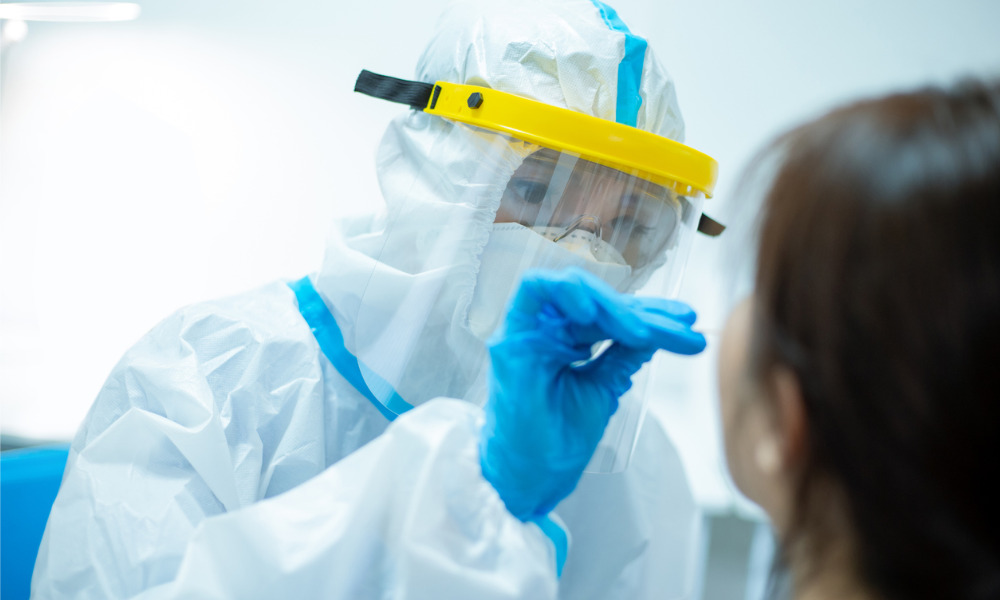
New anti-COVID scheme to be rolled out following police trial

Over the next few weeks, the Peter Doherty Institute for Infection and Immunity will continue its workplace saliva test program at a number of Victorian police stations – and it is believed that if the trial is successful -the program will then be rolled out in a selection of workplaces across the state.
In the current trial, hundreds of police officers and other support staff are giving saliva samples – and the testing has already provided dividends with two asymptomatic cases being identified in the group. Those police employees were unwittingly putting their colleagues in harm’s way, much like the situation that could arise as the rest of the state’s workers return to the communal office.
According to reports in The Australian, it is thought that high risk workplaces will be the first to have the saliva swab tests rolled out weekly, in businesses such as abattoirs, food prep facilities and healthcare services.
The Peter Doherty Institute has been testing three different methods in their pilot – spitting into a vial, collecting it via a straw, or sucking on a swab – the latter proving to be the one most likely to be utilized during the workplace roll out. In addition to the swab tests, the new surveillance system will run pooled tests – where multiple samples are tested in one batch. This allows testers to speed the process up – only needing to test on an individual basis for a pool group that shows a positive.
Workplace #COVID19 saliva testing pilot led by Dr Mike Catton, Deputy Director @TheDohertyInst, is underway in Victoria to help better understand the logistics of continuous testing in higher-risk workplaces.
— Doherty Institute (@TheDohertyInst) September 24, 2020
Learn more: https://t.co/D7XdALDsMf@TheRMH @UniMelbMDHS #CovidTesting pic.twitter.com/ak5jRh4pqp
Mike Catton, Doherty Institute deputy director, told The Australian that this testing was key to preventing the spread of the Coronavirus.
“What government and industry are focused on is ways that we can diminish the risk of those workplaces where we know that if transmission gets started it can be ongoing and problematic. And in workplaces where you’ve got people working in close proximity, it’s hard to socially distance.”
“So, we want to be able to detect the earliest hints of transmission in places like abattoirs and places in the food industry.”
The question remains however, can employers insist that workers take a test at work? When Scott Morrison suggested mandating vaccination for workers in August, he met immediate resistance and backed down rapidly.
It may, however, be legally possible for employers to insist workers comply with such testing – as even vaccination could be required in some cases.
“There is a strong case for requiring particular workers (for example, those in aged care facilities) to be subject to mandatory vaccinations,” human rights lawyer Maria O’Sullivan told The Conversation.
“However, many other workplaces in Australia may also require COVID-19 vaccination certificates under Occupational Health and Safety policies,” she continued.
Do you believe employers should be allowed to require employees to be tested at work? Let us know your thoughts in the comments section below.